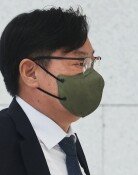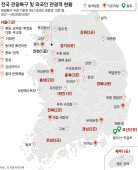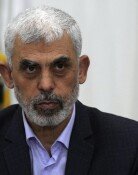Iran is hoped to pursue opening, dialogue under Rouhani
Iran is hoped to pursue opening, dialogue under Rouhani
Posted June. 18, 2013 06:26,
Hassan Rouhani, the unified candidate of moderate and reform factions, won Iran`s presidential election. Iran is a country under a theocratic political system where religious leader Ayatollah Ali Khamenei serves as the supreme leader. Rouhanis victory is a surprise since it defies predictions that a conservative candidate backed by Ali Khamenei would naturally win. Rouhani elevated expectations for Teherans reform and opening by saying It was a victory of wisdom, moderateness and maturity over extremism.
During the eight-year rule under the hardline President Mahmoud Ahmadinejad, the Iranian people suffered pain due to economic sanctions led by the U.S. The public had big discontent toward the oppressive government as well. In the election, Rouhani pledged release of political prisoners and deregulation of the Internet. Younger generations voted for him en masse in anticipation of economic improvement and expanded freedom of individuals.
Major countries worldwide have been paying keen attention to the Iranian presidential election due to nuclear issue and diplomatic policy. The U.S. sent a positive sign to Rouhanis election by saying that it is seeking to find diplomatic solution in the nuclear issue. White House chief of staff Denis McDonough also said that if Rouhani fulfills obligations to address the nuclear program, the U.S. will become his partner. While serving as Irans chief negotiator of nuclear talks from 2003 to 2005, Rouhani displayed his capacity in negotiation by securing the easing of economic sanctions against his country in return for accepting nuclear inspection by the International Atomic Energy Agency.
The West expects changes in Irans diplomatic policy. Attention is focusing on Irans intervention in Syrian civil war. By supporting Syrias Bashar al-Assad government, which is the same Shiites faction as Irans leadership, the Iranian government is effectively supporting brutal massacre of civilians in Syria. Following reports by British media that suggested Iran had decided to send 4,000-strong revolution defense unit to help Syrias government forces, the U.S. government announced that it would provide weapons to the anti-government militia to counter the Syrian governments use of chemical weapons. Iran and the U.S. now face a situation where they could come into direct conflict. If Rouhani shifts Teherans policy direction toward dialogue with Washington, the al-Assad regime will not afford to continue massacre of civilians.
Some analysts say that as a religious leader, Rouhani would not be able to pursue major change that goes beyond the theocratic political system. If he opts for opening and dialogue, however, it will entail Irans economic recovery and compromise with the international community. It is hoped that Iran under Rouhani will choose to join hands with the world.
Headline News
- N. Korea redefines S. Korea as ‘hostile state’ in revised constitution
- Samsung develops graphic DRAM with industry-leading capacity and speed
- Three questions allegedly leaked via text message during Yonsei Univ. essay test
- China to inject 340 trillion won in loans to support real estate sector
- Dodgers beat Mets to take 2-1 lead in NLCS







